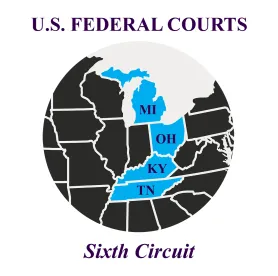The US Court of Appeals for the Sixth Circuit recently denied a taxpayer’s request for a rehearing en banc in Oakbrook Land Holdings, LLC v. Commissioner, No. 20-2117, leaving a highly contested conservation easement regulation in place and setting up a split between the Sixth and Eleventh Circuits.
In Oakbrook, the taxpayer argued that Treas. Reg. § 1.170A-14(g)(6)(ii), known as the “proceeds regulation,” was invalid because it did not satisfy the Administrative Procedure Act’s (APA) notice-and-comment rulemaking procedures. The regulation addresses how to allocate proceeds between donors and donees if an easement is judicially extinguished and the property is sold. In May 2020, the US Tax Court held that the regulation was “procedurally and substantively valid” under the APA. The Sixth Circuit agreed with the Tax Court, upholding the regulation.
The Sixth Circuit’s order issued July 6, 2022, indicated that neither the judges on the original panel nor any other judge on the full court requested a vote for a suggested rehearing. Last year, however, the Eleventh Circuit reached the opposite conclusion in Hewitt v. Commissioner, finding that the same regulation was invalid because it violated the APA. Thus, there is a clear circuit split on the issue.
Practice Point: The government did not seek a review of the Hewitt decision from the Supreme Court of the United States, so that ruling stands in the Eleventh Circuit. It remains to be seen whether the taxpayer in Oakbrook files a petition for a writ of certiorari to the Supreme Court. With a split between the Sixth and Eleventh Circuits, it is possible this conservation easement battle could be headed to the Supreme Court to determine the fate of the proceeds regulation.



 />i
/>i
